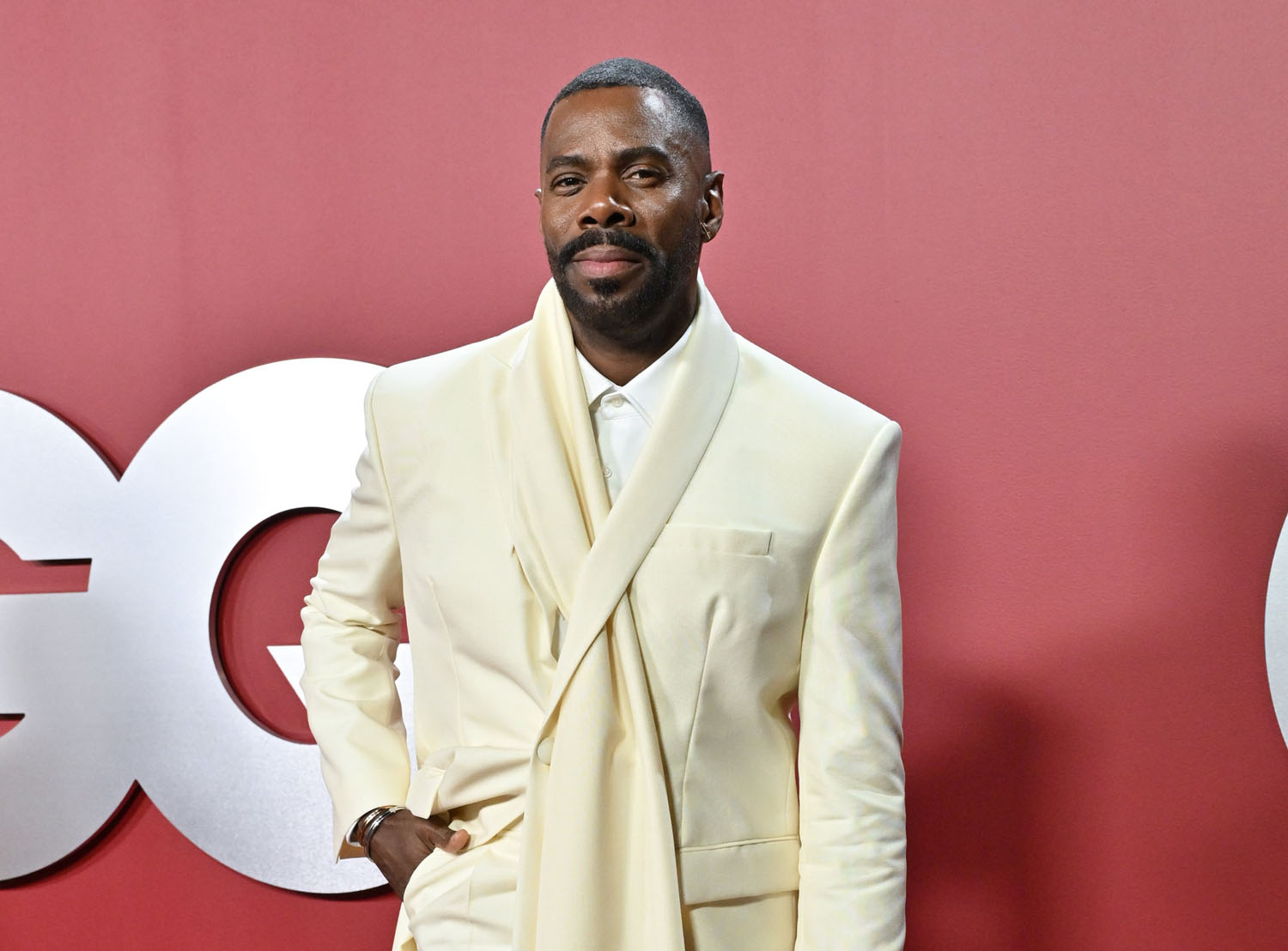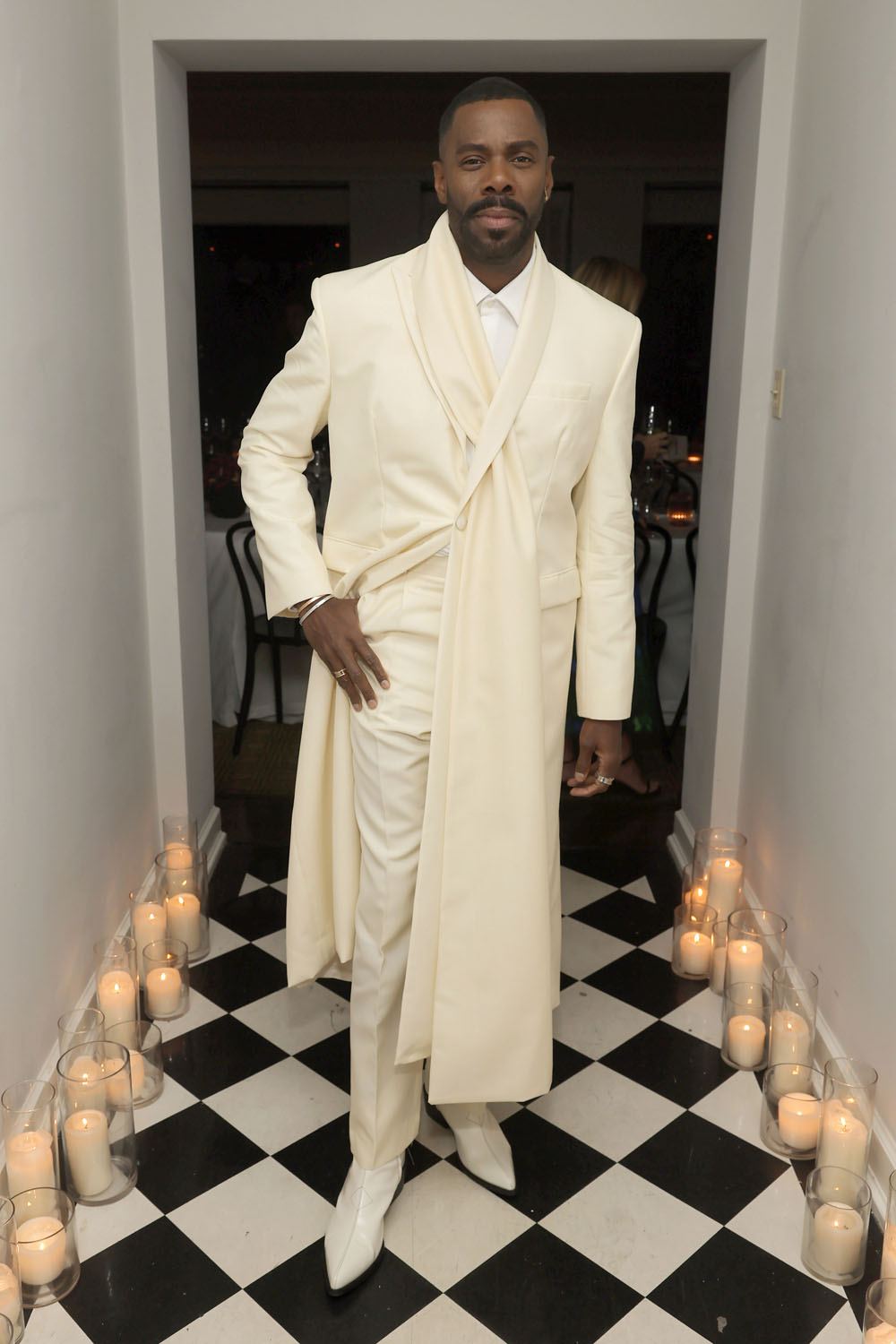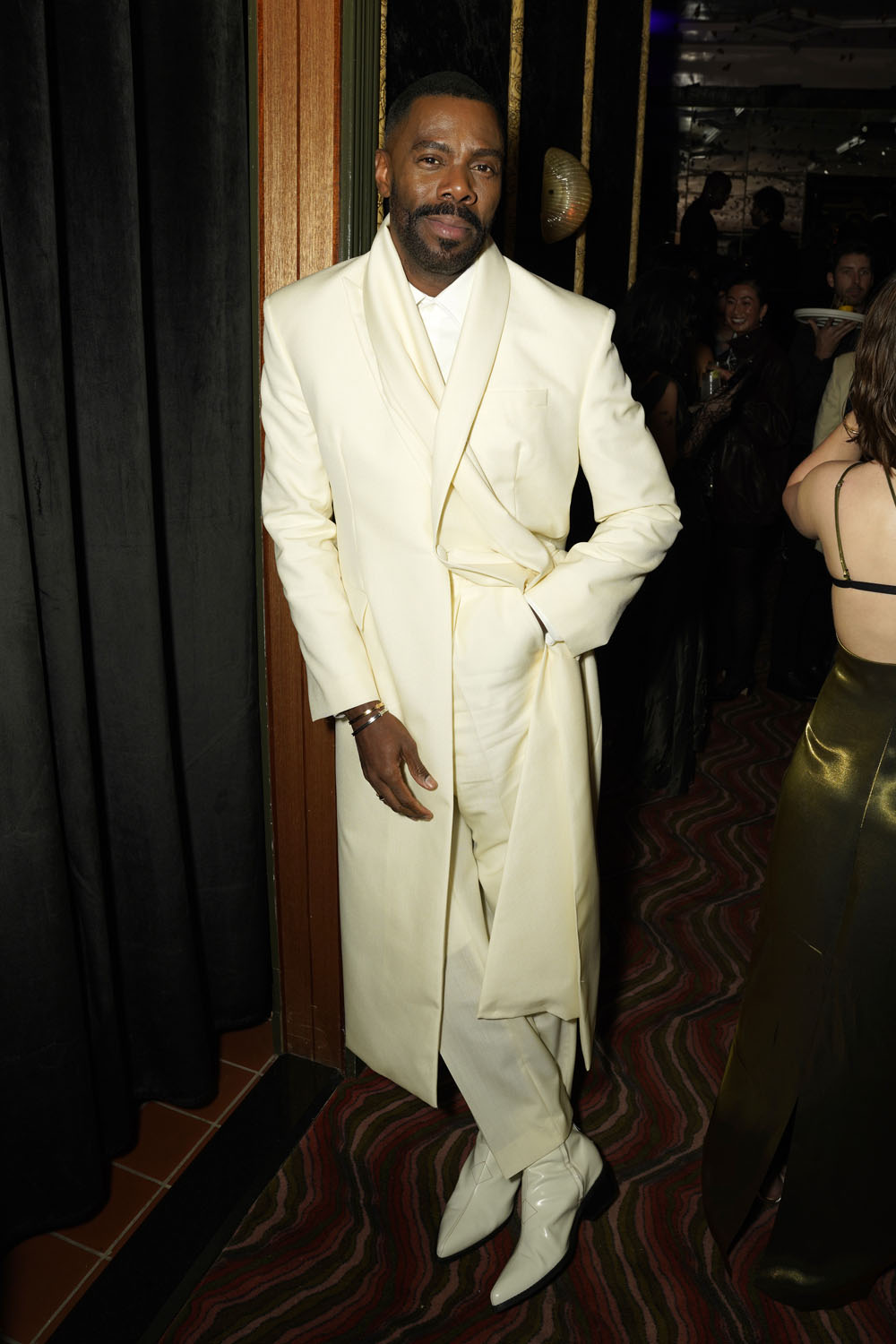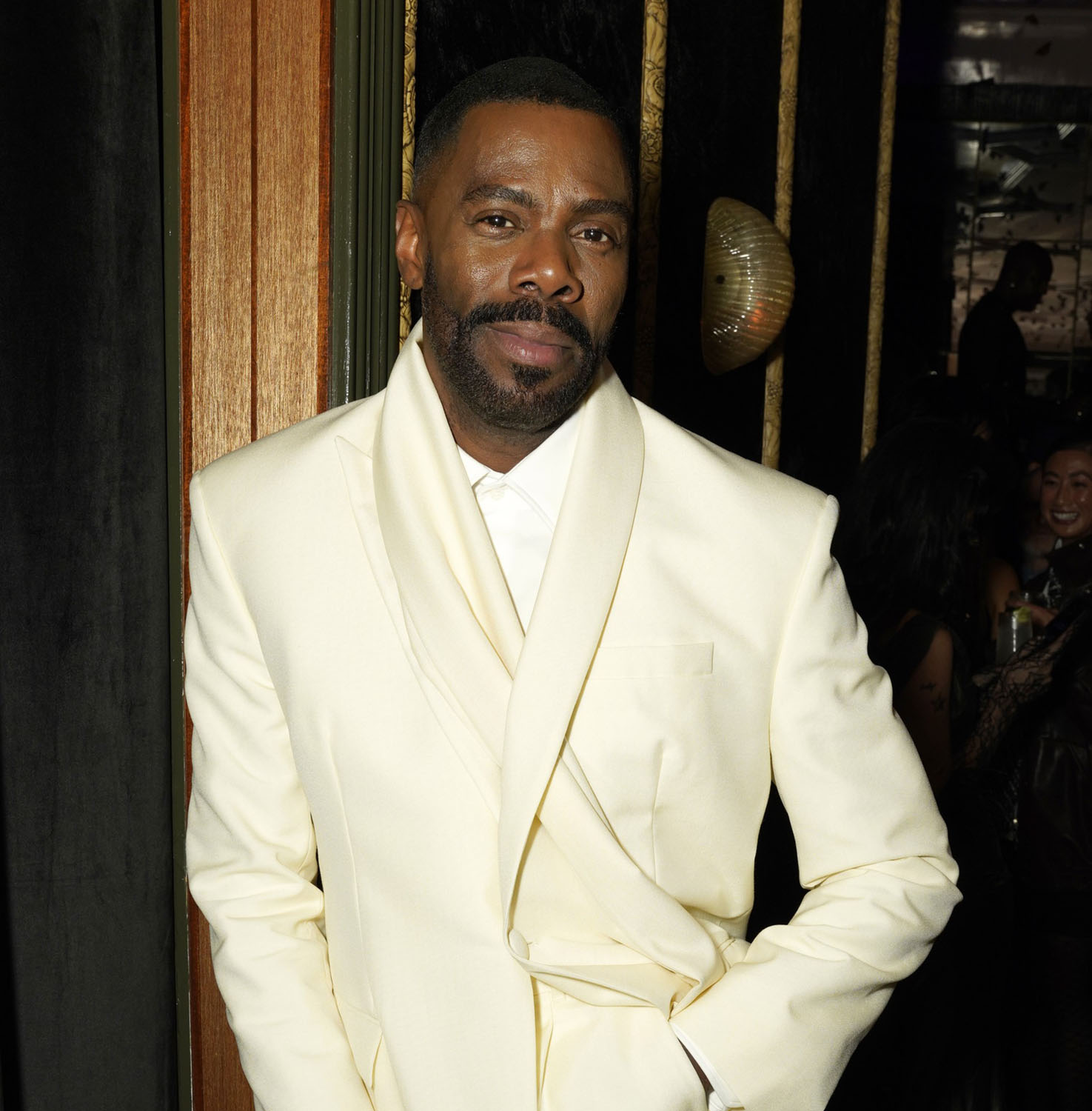Colman Domingo in Rustin



Bayard Rustin is a name you might not know, but you certainly know the results of his work—most notably, the March on Washington for Jobs and Freedom of 1963, which culminated with Martin Luther King, Jr.’s “I have a dream” speech. Bayard Rustin is the man who put it all together, a seasoned civil rights activist fighting on two fronts, as both a Black man and a gay man in mid-century America. Rustin is given the heroic biopic treatment in George C. Wolfe’s eponymous film, Rustin, which is executive produced by Barack and Michelle Obama. When he was president, Obama posthumously granted Rustin a Presidential Medal of Freedom, an act mentioned at the end of the film.
Colman Domingo stars as Bayard Rustin, portraying him as a man who is wildly charming, smarter than almost everyone in the room, and keenly aware of how his insistence on living as all of himself—Black and gay, in a time when both were criminalized—has pushed him to the margins of the movement he helped lead in the 1940s and 1950s. By 1960, he is on his way out, sharing a moment with Martin Luther King (Aml Ameen), encouraging him to remain as a figurehead for the civil rights movement. But Bayard can’t save himself from his political enemies, including the head of the NAACP, Roy Wilkins (a MASSIVELY miscast Chris Rock), and a homophobic representative, Adam Clayton Powell, Jr. (Jeffrey Wright).
The chief problem for Rustin, which is written by Julian Breece and Dustin Lance Black, is just how uneven it is. On the one hand, Domingo is commanding and charismatic as Bayard, letting us in on moments of vulnerability and exhaustion, but also inhabiting Bayard’s determination to keep pushing despite constant slights, setbacks, and blatant threats of blackmail from within his own community. Jeffrey Wright is equally compelling in his brief appearances as Representative Powell, who is willing to tank the March if it means marginalizing Bayard again. But Chris Rock is distractingly bad, he’s so miscast. And Aml Ameen’s performance as MLK is well intentioned but stiff, with none of the charm that MLK could command, too.
Rustin has its moments, depicting Bayard’s personal life as well as his professional one, introducing his on again/off again boyfriend, Tom (Gus Halper), and a closeted pastor and NAACP board member, Elias (Johnny Ramey), with whom Bayard has an affair (these are amalgamations, though the film does acknowledge Bayard’s long-term partner, Walter Naegle). This opens up opportunities for Domingo to play more facets of a character than actors often get in prestige biopics—Bayard is a fighter, a planner, a schemer, a lover, a friend, he’s messy and bitchy and vulnerable. It paints a rounder portrait, made even more robust by Domingo’s commanding performance.
And yet, Rustin feels shallow, rendering the internecine politics of the coalition of civil rights groups fighting for equality in broad strokes, nodding at conflicts such as the exclusion of women from the March without actually examining them (Da’Vine Joy Randolph appears in a cameo as Mahalia Jackson). Similarly, an early scene shows young activists dismissing Bayard as a dinosaur, irrelevant to the movement during the era of Malcolm X and the burgeoning Black Panthers. Later, young people are rapt whenever Bayard speaks, with no explanation of how he won the prickly younger generation over except that he’s the protagonist.
The film is at its best when it is focused on Bayard fighting the uphill battle to put the March together in just seven weeks, squaring off with hateful police in Washington, DC, finessing MLK to speak at the rally, strategizing and outthinking those would see the March shut down, even as he faces multiple public humiliations in an attempt to have him removed from the March. Ironically, it’s the March itself that falls flat, perhaps because Steven Spielberg has MLK’s life rights so no one can quote him in full and Aml Ameen is forced to deliver a few, tepid lines in lieu of the emotional moment we know from the recordings of the event. Rustin aims to give Bayard Rustin his due, but only scratches the surface of what this man went through. Colman Domingo brings wit and wisdom to Bayard, but his performance deserves a better film than this.
Rustin is now streaming exclusively on Netflix.






